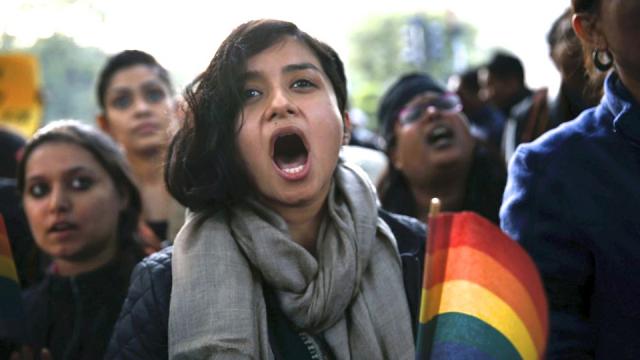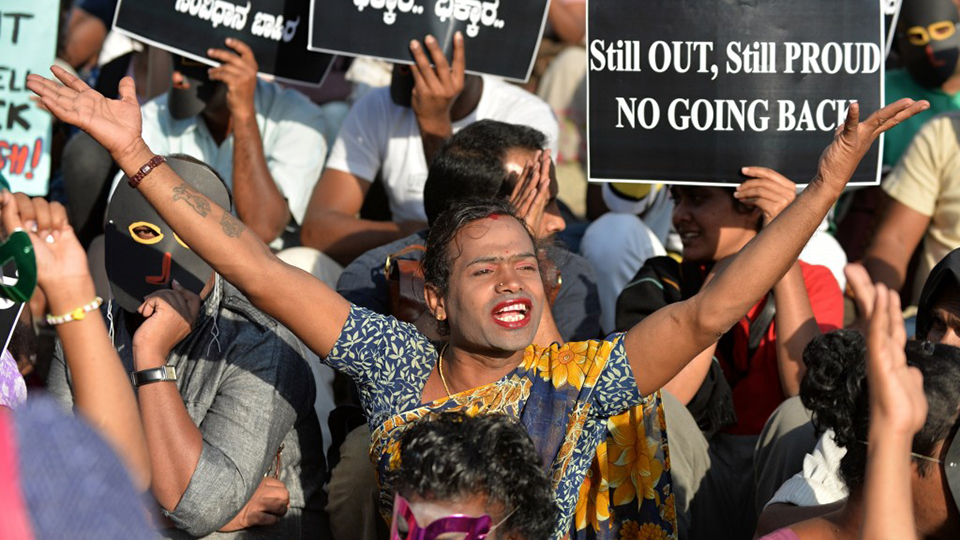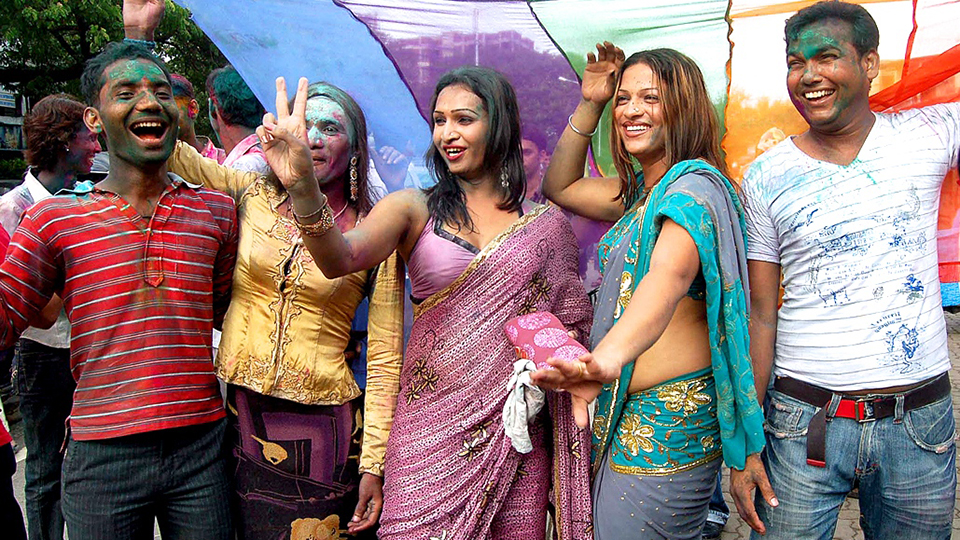
In India, the first Pride march took place in 1999 in the city of Kolkata. It took its time spreading across the country to cities like Bangalore, Bhubaneswar, Bhawanipatna (Odisha), Hyderabad, Pune and Thrissur. But once pride marches became a norm, most assumed that being gay in the country had finally served its time in the closet.
Then, on December 11, the Supreme Court ruled to reinstate Section 377 of India's penal code – the law banning "sex against the order of nature" – officially making homosexuality a crime in India.
In 2009, the Delhi High Court had ruled "unconstitutional" a section of the penal code dating back to 1860 that prohibits "carnal intercourse against the order of nature with any man, woman or animal," and lifted the ban for consenting adults. Homosexuality in India enjoyed four years of legal acceptance until, once again, the whims of lawmakers snatched away that basic human right.
The ruling undoes all the advances made by the 2009 verdict. But today, this vulnerable section of society in India isn’t alone in fighting back. Students, organizations, activists and people from all social strata across the world stood up in solidarity through a December 15 event called The Global Day of Rage.
Organized mostly through Facebook, Twitter and mailing lists, the Global Day of Rage helped coordinate protests and gatherings so that anyone, anywhere, could have a say and join in the protection of this basic human right.
Solidarity With India
After activists in India conceived of the idea, more and more cities got on board to organize protests on the same day. “In Boston, the event was organized by five or six individuals, but we received a great deal of support in terms of posters that had been designed by volunteers in other cities,” says Karthik Rao Cavale, a Phd student at MIT who got involved in the protest.
“I think the act of organizing a protest simultaneously in so many cities created a sense of solidarity that is quite rare. I can only speak of the sense of community I felt at seeing photographs of protests in Mumbai, Delhi, Berlin, London and so on, but I certainly hope that protesters in these other places felt the same way when they saw photographs of the Boston protest.”
Rao Cavale joined students from Harvard and MIT who stood on a freezing Harvard Square and made their views clear. According to the group's message:
“As members and allies of the South Asian LGBTQ community in the Boston area, we find ourselves just as immediately impacted by the Supreme Court verdict as we would be if we were in India today. Our participation in this protest is not symbolic; it is an effort to build a global community stand up against hatred and prejudice, of which Section 377 is just one instance.”
Many Voices, One View
Siddharth Narrain Arcot Ananth, a student at Harvard Law School, supported the solidarity action. “The Supreme Court judgment effectively re-criminalizes millions of LGBT Indians making them vulnerable to arrest, blackmail and discrimination," Ananth said. "We wanted to show our solidarity with those in India and those protesting across the world.”
In the recent legal decision, the re-criminalization of homosexuality has been seen as the issue of crucial importance. There are no laws in India against discrimination in the private sector. Free and open discussion of matters related to sex and sexuality are taboo in the country.
In Chennai, the Chennai Rainbow Coalition gathered at the Press Club recently to protest the decision, shouting slogans like "Love is Not a Crime" and "I'm a Lesbian — Not an Alien."
“I am sacred that now I might lose my job,” said Devan, a teacher at a local school. “I don’t have a legal standing to battle stigma anymore.”
Devan said his parents thought they could get him cured. “A lot of my early years were spent in temples and with religious god men who assured my parents they could make me straight,” he said.
Continuing Homophobia
In Toronto, a solidarity rally was organized by the Alliance for South Asian AIDS Prevention (ASAAP), the South Asian Visual Arts Centre (SAVAC) and Pride Toronto along with friends, families and other communities.
“While we are angered by the decisions of the Supreme Court, we recognize the blood, sweat and tears of the people in India on the frontlines of this fight who evoke not shame, but pride,” said ASAAP Executive Director Vijaya Chikermane.
Meanwhile, political leaders in India have shown little signs of letting up from their expression of homophobic ideologies. Senior politician Yashwant Sinha went so far as to suggest that “the Indian government should prosecute same-sex companions of U.S. diplomats in India since it is criminal in this country.”
And statements like these are helping fuel further activist anger. Ponni Arasu, who was involved in efforts that led to the 2009 landmark ruling in India, took part in the latest Toronto meeting. “This struggle never was and never will be about decriminalizing any one community or person but about changing the fabric of society itself," Arasu said.
"It doesn’t all end with this one law, but it has to also begin here in order for us to have the space to speak, live, breathe without fear.”
And in fact, the global protests against India's new homophobic ruling have already forced the government there to take a fresh look the law. As the Times of India reported, the central government set up a review petition led by attorney general G. E. Vahanvati, who sharply criticized the December 11 judgment saying that the apex court had failed to protect the fundamental rights of the country’s LBGT population.
Will this bring forward the much-needed revision to the law? Many aren't holding their breath. But as one Mumbai protest supporter, named Sumi, said: “We will fight on till our rights are recognized.”
Follow the author Paromita Pain on the Commons or on twitter at @ParoP
3 WAYS TO SHOW YOUR SUPPORT
- Log in to post comments















